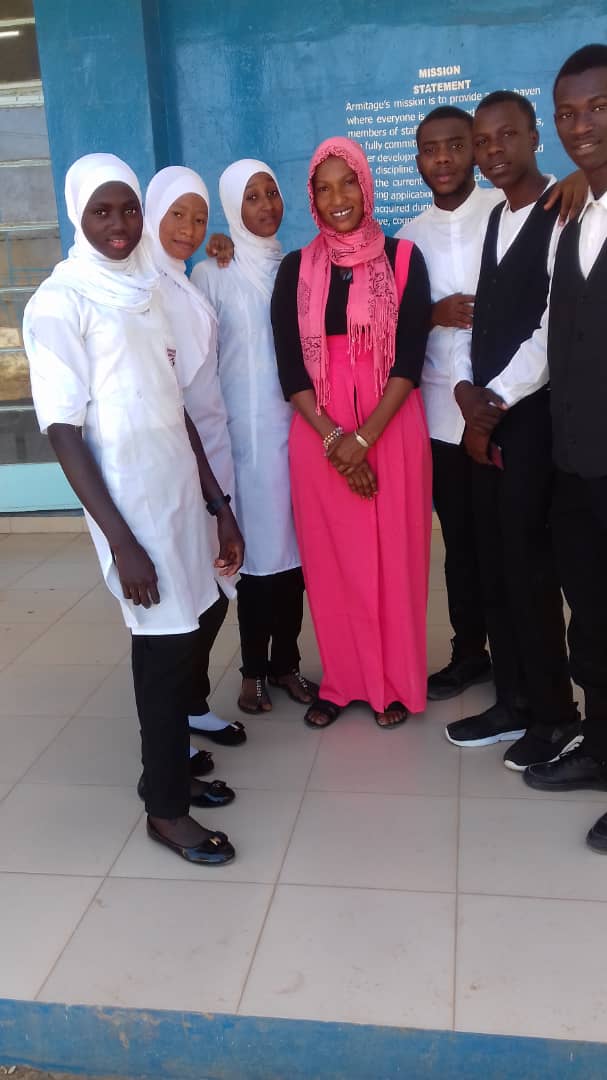A day in my life when I needed access to technology…
A day in my life when I needed access to technology & internet and had to find it
I woke up in the morning by the first called to the morning Prayers in Misera village about 190 km away from the Capital City Banjul after a long night without electricity. And therefore I was at the mercy of mosquitoes and heat; this was an experience of a life time. As Training Officer I was supposed to organize training for fifty participants the next day.
This required me to make phone calls, send some what’s app messages, do photocopying and printing, and most importantly to use the internet to browse and down load some vital messages.
In the Morning it was a nightmare in that there was no electricity and the telephone network was poor and reduced to the minimum and I could barely do any of my planned activities for the day.
After having been told that internet was erratic and could take a whole day to be restored back, I hurriedly got into a ‘bush taxi’ to Soma the regional capital which is 10 kilometers away from home. There, I was able to access the internet, make calls, to do all the photocopying and printing I so desperately needed.
Having stayed there for the most part of the day doing my research and all what I needed to do to have a successful training the next day, I finally came home with a sense of relief that I’m fully prepared for the task that was ahead.
Finally, the training was conducted! I was indeed happy that I was able to overcome the challenges and conducted a successful training. But no doubt the challenges of having access to technology at the time I needed were great!
By Baba Sallah • May 12, 2021

This week while out and about in Hertfordshire and we visited the British Schools Museum. We discovered the first school opened by Joseph Lancaster, was known as the ‘Poor Childs Friend”, was in 1810. It was his lifelong mission that all children regardless of their circumstances, should benefit from an education. Apparently, Joseph heard a small girl say, “Oh that I could read!” and this inspired him to create a simple education system that eventually would benefit children across the world. Joseph was the tenth son of a poor man himself from South London. His aim was to offer free education for everyone. However, it would be 93 years before the U.K. government finally made education free for all. There are still many countries today where education is still not free to access and it is certainly not compulsory for primary and secondary age pupils. Joseph’s mission really resonates with that of the Foundation, to support access to education for all. We enjoyed our visit and appreciated the tour given by two of the Museum’s volunteers, Angela and Clare. They described some of the challenges faced in the early years of formal education and shared some of the rules that teachers and students had to abide by with us.

Sparks Bristol is a collaborative community project initially envisioned by The Global Goals Centre, (GGC) more of which below. A few years ago, GGC took over an empty Marks and Spencer store and that’s how Sparks was born. Sparks is a department store with a difference, co-created by Global Goals Centre and Artspace Lifespace. On the ground floor is a huge range of shops, installations, events and more. Upstairs is a hub for local artists, it offers affordable studios as well as rehearsal and performance space. The Global Goals Centre is a Bristol-based educational charity inspired by the Sustainable Development Goals. (SDGs). GGC believe the SDG’s or Global Goals as they are sometimes known, can be reached, with imaginative solutions and widespread education and engagement. They work with partners to promote creative solutions and deliver ground breaking projects that work towards these ambitious goals. The Steve Sinnott Foundation supported the Global Goals Centre with seed funding when it first started over 5 years ago. This month we went to visit them to see how they are getting on and we were taken aback by the volume of work they have achieved since they started. It is amazing to see how though working together with other local community groups it has grown into the vibrant centre it is today. All of the creative projects they host are linked to the SDGs. They cover topics that tackle poverty, education, climate change, fashion recycling and upcycling, to name a few.

Spring is definitely here, daffodils, blossom and crocuses are all basking in the bright sunshine. There is still a chill in the air in the shade but it's happening and all the seeds that were sown over the last few months are coming to fruition. At the Foundation, we have been planning the year ahead and our Positive Periods and Prevention of Gender Based Violence programmes got underway this weekend in Haiti and Ghana. These projects will have a long-lasting effect on the lives of the women and girls who take part: tackling the root causes of gender-based violence and enabling girls to attend school every day when they have their period, to feel safe at school and know how to take action when they are faced with violence. These are the first of many projects planned for the year ahead as we continue to work towards Education for All children everywhere.


